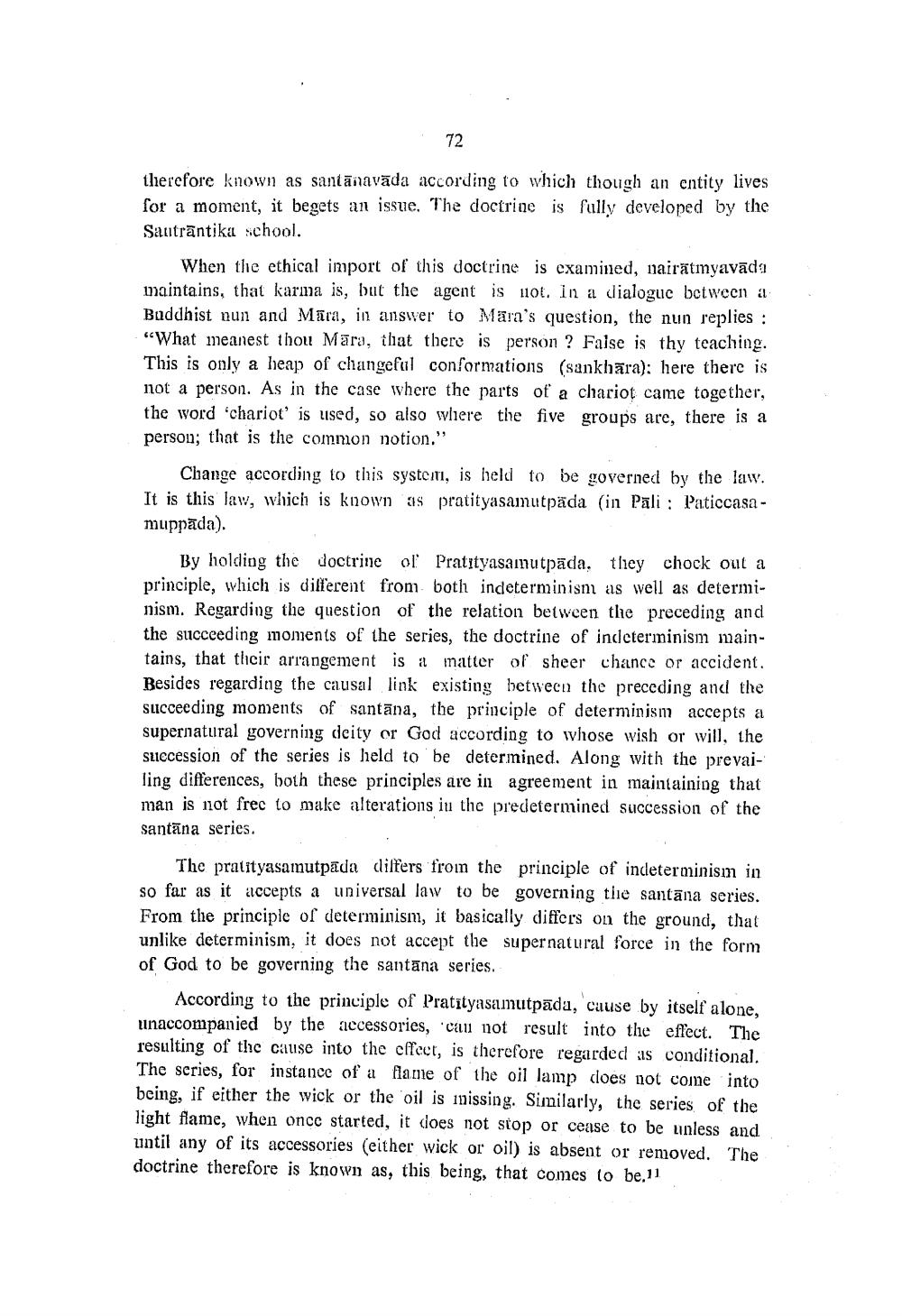________________
72
therefore known as santānavāda according to which though an cntity lives for a moment, it begets an issue. The doctrine is fully developed by the Sautrāntika school.
When the ethical import of this doctrine is examined, nairātmyavāda maintains, that karma is, but the agent is 110t. in a dialogue between a Buddhist nun and Mara, in answer to Mara's question, the nun replies : “What meanest thou Māra, that there is person? False is thy teaching. This is only a heap of changeful conformations (sankhāra); here there is not a person. As in the case where the parts of a chariot came together, the word 'chariot' is used, so also wliere the five groups are, there is a person; that is the common notion."
Change according to this system, is held to be governed by the law. It is this law, which is known as pratityasamutpäda (in Pāli: Paticcasamuppāda).
By holding the doctrine of Pratityasamutpāda. they chock out a principle, which is different from both indeterminism as well as determinism. Regarding the question of the relation between the preceding and the succeeding moments of the series, the doctrine of indeterminism maintains, that their arrangement is a natter of sheer chance or accident. Besides regarding the causal link existing between the preceding and the Succeeding moments of santāna, the principle of determinism accepts a supernatural governing deity or God according to whose wish or will, the succession of the series is held to be determined. Along with the prevailing differences, both these principles are in agreement in maintaining that man is not frec to make alterations iu the predetermined succession of the santāna series.
STICS.
The pratityasamutpāda differs froin the principle of indeterminism in so far as it accepts a universal law to be governing the santāna series. From the principle of determinism, it basically differs on the ground, that unlike determinism, it does not accept the supernatural force in the form of God to be governing the santāna series.
According to the principle of Pratītyasamutpada, cause by itself alone, unaccompanied by the accessories, 'cau not result into the effect. The resulting of the cause into the cffect, is therefore regarded as conditional. The series, for instance of a flame of the oil lamp does not come into being, if either the wick or the oil is missing. Similarly, the series of the light flame, when oncc started, it does not stop or cease to be unless and until any of its accessories (either wick or oil) is absent or removed. The doctrine therefore is known as, this being, that comes to be.11




